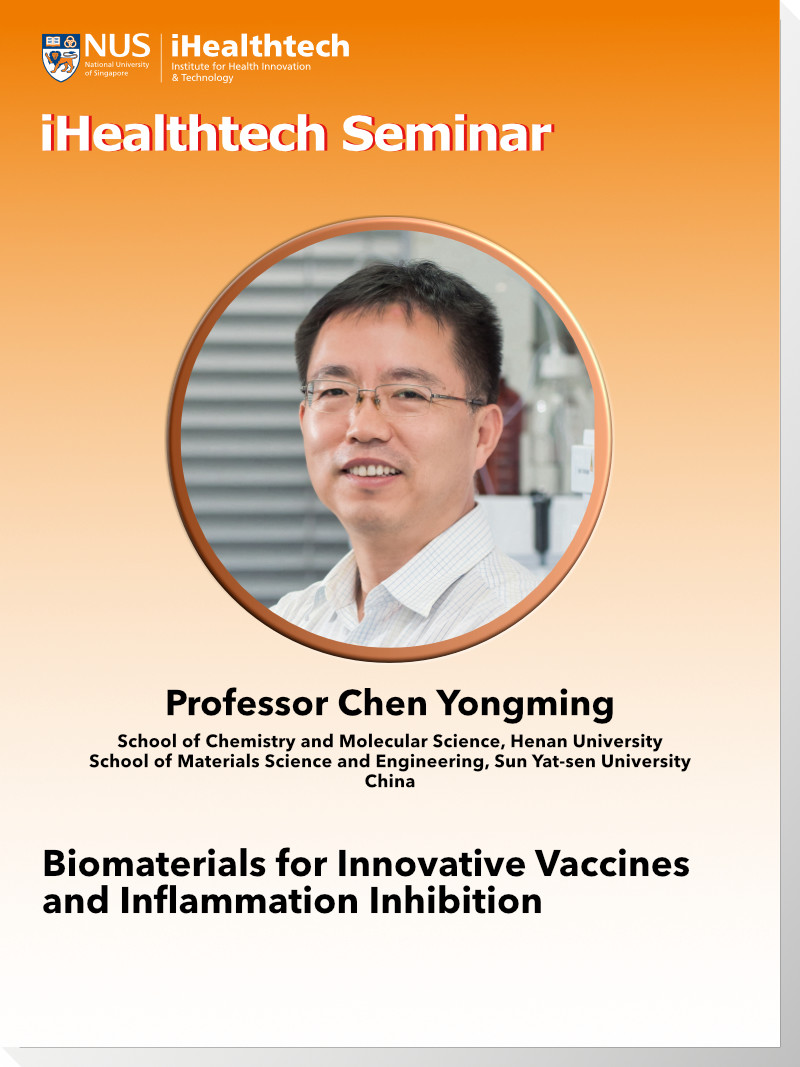“Innovating Health” Distinguished Speaker Webinar Series – Professor Rong Fan

Single-cell sequencing can reveal details of cellular heterogeneity, differentiation, and interactions at an unprecedented level, thanks to recent technological breakthroughs. However, the study of multicellular systems still needs to be conducted in the native tissue context defined by spatially resolved molecular profiles to understand better the role of spatial heterogeneity in biological, physiological, and pathological processes. In recent years, the rise of NGS-based spatial omics is poised to fuel the next wave of a scientific revolution in biological and biomedical research that could pave the way for emerging opportunities to impact biomarker discovery and therapeutic development. By employing spatial omics and a new technology platform called DBiT-seq – microfluidic Deterministic Barcoding in Tissue for spatial multi-omics sequencing developed in my laboratory, the co-mapping of whole transcriptome and a large panel of proteins has been demonstrated for the first time at a high spatial resolution on fixed tissue slides. I will discuss the application of DBiT-seq to spatial transcriptome and protein mapping of whole mouse embryo tissues, spatial transcriptome mapping of FFPE tissue slides, the power of integration with single-cell RNA-seq for cell-type annotation with the spatial location in the tissue, and the latest progress of DBiT as a platform technology to enable spatial epigenome sequencing (spatial-ATAC-seq, spatial-CUT&Tag, etc.) at the cell level.
Biography
Dr Rong Fan is a Professor of Biomedical Engineering at Yale University and the Department of Pathology at Yale School of Medicine. He received a BSc. in Applied Chemistry from the University of Science and Technology in China and a PhD in Chemistry from the University of California, Berkeley. He then completed his postdoctoral training at the California Institute of Technology before launching his research laboratory at Yale University in 2010. His current research focuses on developing microtechnologies for single-cell and spatial omics profiling to probe functional cellular heterogeneity and inter-cellular signalling network in human health and disease (e.g., cancer and autoimmunity). He co-founded IsoPlexis, Singleron Biotechnologies, and AtlasXomics. He currently serves on the Scientific Advisory Board of Bio-Techne. He received several prestigious awards, including the National Cancer Institute’s Howard Temin Career Transition Award, the NSF CAREER Award, and the Packard Fellowship for Science and Engineering. He was elected to the American Institute for Medical and Biological Engineering (AIMBE), the Connecticut Academy of Science and Engineering (CASE), and the National Academy of Inventors (NAI)
Register the webinar here: https://nus-sg.zoom.us/webinar/register/WN_ocUOk4e1Qf6JxHAC1fz9qA
Download the poster here [pdf]






